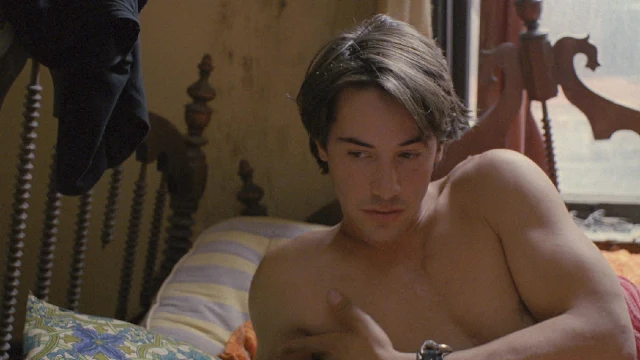 |
| Vince Vaughn in Psycho |
Cast: Vince Vaughn, Anne Heche, Julianne Moore, Viggo Mortensen, William H. Macy, Robert Forster, Philip Baker Hall, Anne Haney, Chad Everett, Rance Howard, Rita Wilson, James Remar, James Le Gros. Screenplay: James Sefano, based on a novel by Robert Bloch. Cinematography: Christopher Doyle. Production design: Tom Foden. Film editing: Amy E. Duddleston. Music: Bernard Herrmann.
Accepting the role of Norman Bates in Gus Van Sant's remake of Alfred Hitchcock's Psycho was an act that took chutzpah or hubris or something. There are few performances more definitive than Anthony Perkins in the role in the 1960 film. It's much easier to accept some of the actors who replace the originals: Viggo Mortensen is a far more capable actor than John Gavin, and he gives the role of Sam Loomis personality. Julianne Moore is tougher and feistier than Vera Miles as Lila Crane. And even Anne Heche is acceptable as Marion Crane, though lacking the touch of glamour -- and the shock of her early departure from the movie -- that made Janet Leigh iconic in the role. Which is just to say that Van Sant's version is an experiment that never justifies itself: Can a nearly shot-for-shot re-creation of a classic film succeed as its own movie? It didn't, of course, meeting critical scorn and audience indifference. The incidental departures from the Hitchcock version, the updatings to meet contemporary expectations are glaringly irrelevant: San is naked in the bedroom scene at the beginning; Norman masturbates when he looks at Marion through the peephole; we see the wounds inflicted by Mother and Marion's nude buttocks in the shower scene. Even the rescoring of Bernard Herrmann's music by Danny Elfman feels less effective in the new context. As so often with remakes, we come to see what made the original so brilliant.





.jpeg)
.jpeg)
.jpeg)






